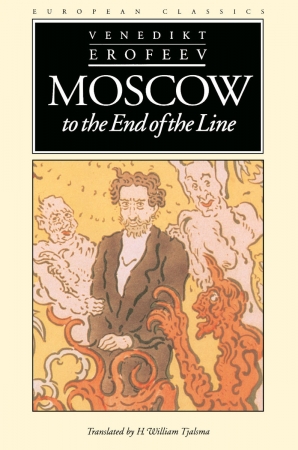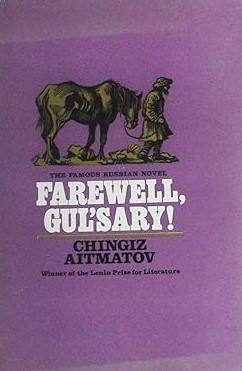
Moscow to the End of the Line
Book Description
A journey through the soul of Russia begins in a smoke-filled train car, where the clinking of glasses and bitter laughter mask a simmering despair. Venedikt Erofeev's 'Moscow to the End of the Line' plunges into the chaotic whirlwind of an alcohol-fueled odyssey, where every stop reveals the absurdity of life and the fragility of human connection. Amidst surreal encounters and haunting memories, a brooding protagonist battles the demons of existence, seeking solace in fleeting intoxication. Will this descent into madness lead to salvation, or will it spiral into the abyss?
Quick Book Summary
"Moscow to the End of the Line" by Venedikt Erofeev is a darkly comic and poignant examination of Soviet-era Russia, as seen through the eyes of its narrator, Venya. Embarking on a train journey from Moscow to Petushki, Venya chronicles not just the literal voyage, but a descent into the psychological labyrinth of despair, alienation, and intoxication. The narrative is infused with biting satire, surreal episodes, and a deep sense of existential malaise. Through his encounters with fellow passengers and his ongoing conversation with himself, Venya captures the absurdity of Soviet life, the paradoxes of human relationships, and the ephemeral nature of hope. Erofeev uses humor and pathos to illuminate the fragility and resilience of the human spirit, making the story a quintessential exploration of the Russian soul.
Summary of Key Ideas
Table of Contents
Alcohol as Escape and Self-Destruction
The novel unfolds as its protagonist, Venya, boards an early morning commuter train traveling from Moscow to the suburban town of Petushki, ostensibly to visit his beloved and her child. Almost immediately, the boundaries of reality blur as Venya, a self-styled intellectual and perpetual outcast, begins to narrate his odyssey through a haze of alcohol. The journey is both literal and symbolic: a train route through Soviet Russia and a metaphysical passage through Venya’s own fractured psyche, reflecting the disintegration of a life caught between melancholy and madness.
Absurdity and Satire of Soviet Life
Venya’s narrative is saturated with alcoholic excess. Drink is not only a constant companion but also a philosophical crutch and a means of coping with personal and societal anguish. Venya elaborates on recipes for cocktails and recounts epic drinking contests, all laced with irony and wit. Yet beneath the farce, alcohol reveals itself as an agent of self-destruction, exacerbating Venya’s sense of isolation and loss. It becomes a metaphor for the broader malaise suffusing Soviet society, where escapism is both a coping mechanism and a form of resistance.
Isolation and the Search for Connection
Throughout the journey, the book lampoons the absurdities of Soviet life—bureaucracy, propaganda, and the yawning gap between official rhetoric and lived reality. Surreal dialogues, shifting narrative forms, and a parade of eccentric fellow passengers pull the story into the realm of absurdism. Humor and parody are wielded as weapons against oppression, but they also underscore the sense of powerlessness and alienation. Venya’s observations highlight the contradictions and farcical routines embedded in everyday existence.
The Journey Motif and Symbolism
Despite the laughter and bravado, Venya’s acute loneliness permeates every encounter. His interactions are fleeting, marked by moments of candor, comradery, and mutual misunderstanding. The longing for love and meaningful connection is contrasted with the profound inability of individuals to bridge the chasms between them. Venya remains haunted by memories, regret, and a yearning for transcendence, but is continually pulled back into despair by his circumstances and habits.
Fragility of Hope in Despair
As the train approaches its final destination, the narrative grows increasingly hallucinatory and fragmented. Petushki, the shining city of love in Venya’s imagination, remains forever out of reach—an unattainable symbol of hope and redemption. Instead, the journey culminates in a cyclical return to the starting point, suggesting the inescapability of Venya’s existential plight. Erofeev’s novel thus ends on a profoundly ambiguous note, affirming the resilience of yearning even as it acknowledges the tragic impossibility of escape.
Download This Summary
Get a free PDF of this summary instantly — no email required.





